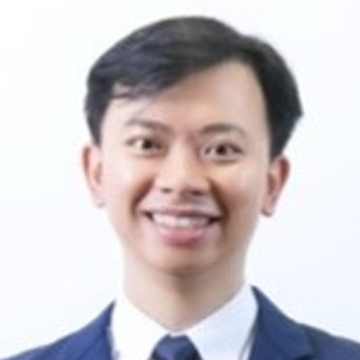[3-day Short Course] Using Skills-Based Behavioural Health Approaches in Managing Chronic Conditions

Registration Guide
(self-sponsored)
Applicable for self-sponsored learners who are registering for themselves.
Registration Guide
(company-sponsored)
Applicable for company-sponsored learners and HR/admin teams who are registering for their staff.
Course Brochure
View the full course details in the link below or share the brochure with your team.
About the Course
Social workers, Counsellors, Case Managers/Coordinators are often required to conduct needs and intake assessment to identify client’s/patients’ treatment compliance, understanding and acceptance of his/her chronic health conditions. This course covers case and care planning using different models and approaches for developing case and care plans to support clients'/patients’ need in accordance to organisational practice. This includes behavioural changes and effective family intervention to influence positive behavioural changes and compliance for chronic conditions. Participants will learn to provide systemic approaches to casework interventions and evaluate effectiveness and efficiency of casework interventions.
Objectives
At the end of the course, participants will be able to:
- Assess clients’/patients’ level of functioning, risks and needs for holistic social work case and care planning,
- Formulate case using the Biopsychosocial, Systemic and Person Centred approach,
- Contract and goal setting for clients/patients in managing behavioural change using various Behavioural models, and
- Facilitate behavioural change and positive coping in clients and their families.
Who Should Attend
Social Workers, Counsellors, Case Managers/Coordinators with at least 1 year of relevant work experience.
Course Fees
| Fees Description | Total Payable (incl. GST) |
| Full course fees | $2,779.50 |
| Pricing after SSG Funding* (Singapore Citizen below 40 years / Singapore Permanent Resident) | $833.85 |
| Pricing after SSG Funding* (Singapore Citizen aged 40 years and above) | $323.85 |
*SSG Funding Information: Learners must achieve a ‘Competent’ grade in assessment, to be eligible for SSG funding. Please note that learners may have to bear the full course fee (incl. GST) if they fail to meet this requirement.
About the Instructors

Ms Alicia Tan
Senior Master Medical Social Worker
Sengkang General Hospital
Ms Alicia Tan is a Senior Master Medical Social Worker of Sengkang General Hospital. She possessed more than 20 years of clinical experience in acute hospital social work and used to head the Medical Social Service department till 2024. She is a certified mapper in Dementia Care Mapping and has been trained in Montessori Based Dementia Programming®. Her clinical work revolves around care planning for people with and also works with survivors of elder abuse and domestic violence.

Ms Jenny Goh
Medical Social Work Specialist
Dementia & Geriatric Care
Ms Jenny Goh has more than 20 years of clinical experience in acute hospital social work. For the past 10 years, she was managing the Medical Social Service (MSS) department in Khoo Teck Puat Hospital (KTPH) and was the Deputy Head of Yishun Health MSS. With specialised training in dementia care, she has a clinical practice as a Principal Medical Social Worker in Geriatric clinic at KTPH. Her clinical work revolves around counseling persons with early dementia and guiding them in advanced care planning, supporting caregivers and helping them cope with caring for a relative with dementia, in particular challenging behaviour, grief and loss.
She is an Advanced Mapper in Dementia Care Mapping, has been trained in Time Slips© creativity for dementia care and has also been certified in Advanced Care Planning (ACP) from Respecting Choices©. She teaches Person Centred Care, end of life care, ACP and ethical issues in case management. She is also a well established clinical supervisor. For her teaching excellence, Ms Jenny has been awarded the Ann Wee NUS Social Work Alumni Award in 2019.

Mr Adrian Toh
Clinical Psychologist
Mr Adrian Toh is a Clinical Psychologist, registered in Singapore. He was working in a restructured hospital for a decade before his current work in private practice. During which, apart from working with patients with mental health issues, he worked closely with individuals with chronic diseases and health issues. Adrian was very involved in various multi-disciplinary teams that consisted of medical and allied health professionals. He had provided trainings for them, and these trainings include topics such as 1) how to better work with patients, 2) how to improve patients' compliance and motivation, 3) psychological barriers to effective medical treatments.

